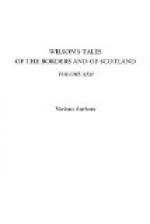“There now is Plato’s definition of a man personified,” said he as he laughed.
During all this time a lady looked over the parapet. Dewhurst caught her eye red with anger, but he only laughed the louder.
“Now, Hamilton,” said he, “you take the bird, and we mount to the platform. When I give the sign, fling him in, and we shall see how the bet goes.”
They accordingly mounted, and the lady turning her back, as if she had been unable to bear longer the sight of so much cold cruelty, directed her vision towards the west; but a little boy, who was along with her, seemed to watch the operation.
“Now,” cried Dewhurst.
And Hamilton thiew the bird into the sea. The creature, still vivacious, true to its old instinct, spread out its bare wings in an attempt to fly, but it was in vain; down it came sinking below the surface, but rising quickly again to lash, with the bleeding wings, the water on which it used to swim so lightly and elegantly. The struggle between the effort to fly and the tendency to sink was continued for several minutes, its screams bringing closer around it many of its compeers, who looked as if with pity and amazement on the suffering victim, known to them now only by the well-known cry of distress.
Meanwhile these curious students of natural history stood looking over the rail, watch in hand; and the little boy, an important personage in our story, also intent upon the experiment, cried out two solitary words, very simple ones too, and yet fraught with a strange import, as regards consequences, that could not be gathered from them.
“See, ma’.”
But the lady to whom they were addressed had still her head turned away.
“Six minutes,” cried Dewhurst. “The time is up, and the bird is only this instant down. I win.”
“I admit it,” responded Hamilton, evidently disconcerted. “I shall pay you to-night at Stewart’s, at seven o’clock. I got my remittance yesterday.”
“Content,” said Dewhurst, “That’s the third bet I have gained off you within a fortnight,”
Hamilton bit his lip and scowled—– an act which only roused against him the raillery of his comrades, who were now collected in a circle, and symptoms of anger of a more expressive kind showed themselves.
“You have been at this trade of flaying before,” said he, looking sternly at Dewhurst. “Your father, like the other West Indians, is well acquainted with the flaying of negroes, and you have been following his example with the Jamaica lungies. But, by G—d,” he added, getting enraged, “next time we cross the rapiers of a bet, it shall be for ten times five.”
“This instant,” answered Dewhurst, on whom the imputations about his father acted as a fiery stimulant.
“Seek your subject,” responded Hamilton.
“You see that lady there?” continued the West Indian. “She has a boy with her.”
“I do.”




